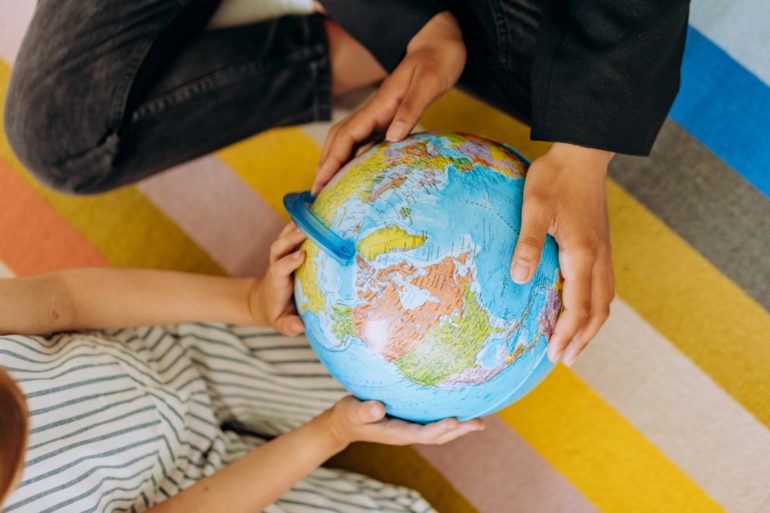How To Talk To Your Children About The Russian Invasion of Ukraine
Tags: anxiety, communication, mental health, safety
Imagine you’re a kid and you overhear “tidal wave of violence”, “bombing”, “invasion”, “World War 3”, “consequences greater than any in history”.
Without the maturity and understanding a child can jump to terrible conclusions that there are impending dangers to themselves and their families.
Parents are responsible for the psychological safety of their children and we can’t be assured of what they will hear or see and how they will interpret it.
Some Advice For Managing This Communication Effectively in An Age-Appropriate Way…
Under Age 7
- Try to protect them from any exposure (no images, sounds, stories). That means don’t watch the news with your toddler playing with their blocks on the floor. If the news comes on the radio in your car when you’re taking your 5 year old to the park, change to a music station. They really can’t understand complex situations such as this, but they do react to scary sounds and sights and feel scared, worried and confused.
- If you do need to answer a question keep it basic: “two countries vary far away are at war. That is happening very far away and we are safe here. There have been wars before and I am sure they will work it out.”
- Your attitude is infectious. If you’re calm, your child will be more likely to be calm.
- Some parents may not be able to manage their fears and emotions. The circumstances might be different for families that have relatives in Ukraine, or perhaps your family is a refugee from another war-torn country etc. Everyone’s experience is different. It’s okay to say “I am really upset about what is happening. I really want everyone to get along.” You don’t want to worry your kids so that they feel they have to take care of you! Your job is to make them feel safe.
Age 8-12
- Ask what they have heard and what they understand so far. That way you can help clarify any misunderstandings and round out just enough of the basics for them to feel safe.
- Don’t lie, always tell the truth, but be discriminating in sharing just enough to answer their questions and make them feel assured they are safe.
- It’s okay to say “we are safe, but worried for others. If I learn more that you should know I’ll let you know. Leave this with me to follow.”
- When kids’ sense of safety and security is threatened they can need addition cuddles and closeness. Make time to slow down and be calm, close and comforting to help them regain feelings of safety. Your calm attitude is infectious. If you are calm, things must be okay out there.
Teens
- They will have access to social media & news sources. Help them interpret the accuracy of what they are seeing. Even horrible events can still seem magnified. Images can be upsetting and discuss how to balance staying informed with being flooded and overwhelmed by not scrolling and watching all day.
- Follow your child’s lead on their interest in politics, history and current events. Don’t over talk it if it’s more your interest than theirs.
For All Ages: DO something
When we feel powerless about events, it’s important to ask ourselves “what can I do?”. We may not be able to fix the whole thing, but we can all do something! Even from afar. This is how we encourage social activism.
This could range from a young child wanting to say a special prayer at bedtime hoping for peace or hanging a crayon picture of peace signs in the window. Fly the Ukrainian flag, or post it on your social media. Make a donation, or attend a local discussion group or protest.



2 Responses to “How To Talk To Your Children About The Russian Invasion of Ukraine”
Saba
Thank you Alsyon for this blog and many other posts and insights you share with parents. I have been waiting for some time to hear from you about how to talk to kids about what’s happening in Gaza and encourage social activism and all the good stuff you teach about injustices and standing up for truth and caring about humanity? Hope to hear back from you that why are you abstaining from this humanitarian crisis that’s affecting not just people in Palestine but here at home too!
Sincerely,
Saba
Alyson Schafer
Hello Saba, I had to scale my work back almost completely to deal with a family member that is dying of cancer. I am always concerned about world events and the right to respect and dignity for all. I just have to limit my energies to my own family at the moment. There will be many child psyschologist posting on this topic that should prove helpful. Take good care.